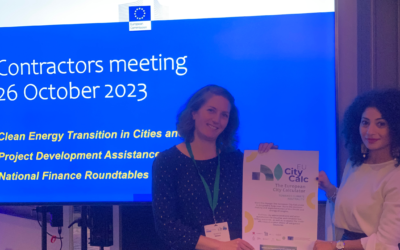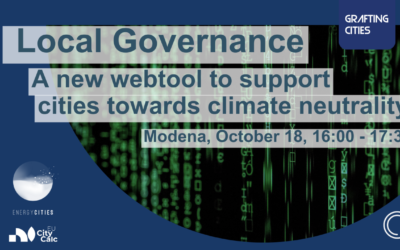The upcoming revision of the Governance Regulation is a great chance cities cannot miss
In principle, the European Union’s Governance Regulation, which sets a framework for long-term energy and climate planning through 2030 and beyond, requires EU Member States to closely coordinate with regional and local authorities, the public, and other stakeholders, when formulating their 10-year National Energy and Climate Plans (NECPs). The requirements for public participation and “multi-level climate and energy dialogues” in co-designing NECPs are covered under Articles 10 and 11 of the Governance Regulation.
However, in practice, true multi-level climate policy-making and inclusive public participation are lacking. In many cases, cities and local authorities are not adequately consulted nor involved in climate policymaking processes at the national and EU levels. This has been well documented by many local authorities, NGOs, and other stakeholders, which we have also showcased in a set of practical videos and in two previous EUCityCalc reports entitled National and EU factors affecting EUCityCalc pilot cities’ climate transitions and Tracking EU climate policy and engaging with policymakers: a toolkit for cities to unlock climate action.
Building on exchanges and inputs from partners in the EUCityCalc project and on a range of literature, our most recent report, Revising the EU Governance Regulation for enhanced local and national climate action (available on our publications page), provides a set of recommendations for EU policymakers for the upcoming and urgently needed revision of the EU Governance Regulation that is no longer fit-for-purpose.
How to improve the EU Governance Regulation
The EUCityCalc recommendations include proposals to strengthen the mandate of the European Commission for compliance enforcement of the Governance Regulation and to expand the NECP template to include reporting of urban climate data and measures – e.g. SECAPs, Climate City Contracts, Local Green Deals – and support and resources provided by national and EU governments to support local implementation of national policies. Together, these efforts would seek to strengthen compliance with the Governance Regulation, namely its provisions for public participation and stakeholder dialogues when designing NECPs, and would ensure better cross-governmental communication and streamlining of resources to the local level where it is most needed.
EUCityCalc also calls for urgent strengthening of the Governance Regulation’s provision for multi-level climate and energy dialogues. Given the inconsistent and often poor implementation of such dialogues across Member States, which are an essential means by which local authorities can actually feed into national-level climate policy, these need to be grounded in a permanent institutional structure to ensure long-term consistency – especially important in the face of shifting political offices and priorities – and with clear minimum requirements for frequency of meetings and diverse representation.
Permanent multi-level climate and energy dialogues should meet a minimum of three times a year outside of NECP update cycles, and up to six times a year during NECP update cycles, including at least 6 organisations representing local authorities and 3 NGOs/CSOs.
When it comes to strengthening public participation requirements, there should be an added provision requiring Member States to set out a strategy identifying different stakeholder groups among the public and how these groups will be engaged accordingly. For example, social media promotion and online articles may be an effective way to engage some groups, while holding a public meeting or putting up physical flyers in public spaces and municipal buildings may be more effective for other groups.
Moreover, when draft NECPs are circulated for public input, the public should be notified at least 2 weeks in advance, the window for inputs should last for at least 1 month and should conclude at least 2 months before the NECP deadline to allow for sufficient time for the Member State to process and incorporate any views before submission.
To find out more details about EUCityCalc’s recommendations to urgently revise the Governance Regulation, check out our full policy briefing!











